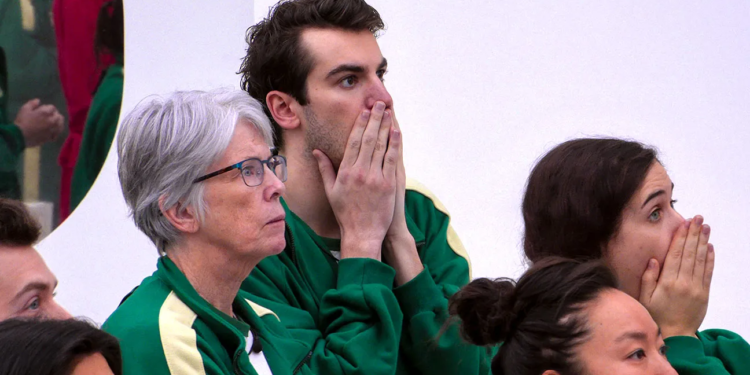Introduction:
Squid Game: The Challenge, the much-anticipated reality series adaptation of the Emmy award-winning Squid Game, recently dropped its initial five episodes on Netflix, leaving viewers hanging after the suspenseful ending of Episode 5.
The Golden Ticket Illusion:
As one participant aptly puts it, “It’s like Willy Wonka and the Chocolate Factory, going after the Golden Ticket.” However, as the series unfolds from the first few minutes to the conclusion of Episode 1, the adrenaline rush that made the original K-drama a sensation seems to dissipate, casting a shadow over the viewer’s experience.
Trending: The Railway Men Review: New Netflix Series Unveiling the Unsung Heroes of Bhopal Gas Tragedy
Mimicking Appearance, Missing Essence:
While Squid Game: The Challenge successfully mimics the aesthetic elements of the original drama – with its Escher-esque staircase, black-hot pink masked guards, and numbered tracks worn by contestants – it falls short of capturing the essence that made the show iconic. The adaptation, written and directed by Hwang Dong Hyuk, the mastermind behind the original drama, derails from the core anti-capitalism theme.
Hollow Capitalism and Dehumanization:
The reality competition, centered around capitalism and dehumanization, feels hollow. Contestants, driven solely by the thirst for money, lack the depth of relationships seen in the real world. The focus on winning overshadows the likability of the contestants, and even the talking heads fail to establish a deeper connection with the audience. Just as viewers start to understand a character, the player is unceremoniously eliminated.
Episodic Repetition:
The first few episodes revolve around children’s games, attempting to recreate the original series but falling into monotony. The “Red Light Green Light” game, while reminiscent of the original, lacks the excitement it once held. The Dalgona candy episode introduces an uninteresting challenge, and only Episode 3, featuring the “Warship” game, manages to inject a semblance of fun into an otherwise tedious series.
Diverse Contestant Mix:
Squid Game: The Challenge introduces an array of contestants, including a college dropout, a sixty-something older man and woman, middle-aged individuals, and even a lesbian-married couple. While the diversity is commendable, the lack of connection between contestants makes it challenging for viewers to invest emotionally.
The Standout Duo:
Among the pairs, the mother-son duo (players 301 and 302) stands out for attempting to build a connection. However, with only 63 contestants out of the initial 456 making it to the next challenges, the show’s attempt at character development is cut short.
Conclusion: A Hollow Trip Down Memory Lane:
In conclusion, Squid Game: The Challenge offers a painstakingly recreated version with superficial challenges and a lackluster script. Viewers are left with a choice – to ditch this echo of the original’s brilliance or take a hollow trip down memory lane. The first five episodes are currently available for streaming on Netflix.























